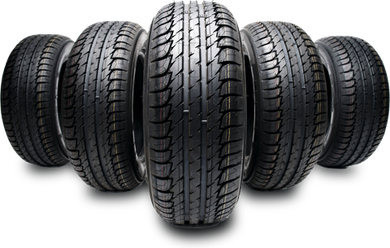Conserve Big with Mopar Tire Service Specials: Best Deals and Professional Care
Conserve Big with Mopar Tire Service Specials: Best Deals and Professional Care
Blog Article
Tire Service: The Influence of Weather
When it concerns making certain optimal efficiency and safety and security when driving, recognizing the effect of climate condition on tire service is important. From scorching heat to icy roads, each weather condition aspect can dramatically influence tire performance and overall driving experience. By diving right into the results of differing climate condition on tires, drivers can acquire important understandings that may boost their car's performance and long life. In this conversation, we will certainly explore the detailed relationship in between weather condition conditions and tire solution, losing light on the value of weather-specific tire maintenance methods and factors to consider.
Warmth and Tire Performance
When subjected to heats, tires experience adjustments in performance that can considerably affect lorry safety and security and handling. The heat created from prolonged driving or heat conditions causes the tire rubber to soften, causing decreased step life and raised wear. As the rubber comes to be softer, the tire's grip when driving lessens, affecting braking distances and total traction. In severe cases, too much warm can also cause tire blowouts, posturing a severe safety danger to the car and its residents.
Moreover, high temperatures can speed up the procedure of tire aging, triggering the rubber to deteriorate much more swiftly. To alleviate the effects of heat on tire efficiency, drivers need to regularly check their tire pressure, rotate tires to make sure also use, and examine for any type of signs of damages.
Cold Weather Impacts
Cold weather condition problems can have a significant influence on tire performance and safety. In cold weather condition, tires might additionally shed air pressure much more rapidly, which can impact handling and fuel efficiency.
To mitigate the results of cool climate on tires, it is important to frequently check tire stress and inflate them to the supplier's suggested levels. Making use of winter months or all-season tires designed for chilly weather condition conditions can also boost traction and grasp on icy or snowy roads - morris tire and alignment. Proper tire upkeep, including normal examinations for wear and damages, becomes much more critical throughout chillier months to make sure optimal performance and safety and security
Rainy Conditions Impact
Tires with damaged footsteps are a lot more vulnerable to hydroplaning, where a layer of water develops up between the tire and the road surface, leading to loss of traction. To fight this, vehicle drivers should frequently check their tires for ample step deepness and consider investing in tires specifically developed for wet conditions.

Snow and Tire Safety
Snow-covered roads position distinct challenges for motorists, emphasizing the relevance of appropriate tire selection and upkeep. When driving in snowy problems, having the best tires can make a considerable distinction in safety and security and performance. Winter months tires are developed with unique rubber substances and step patterns to offer much better grip on snow and ice contrasted to all-season tires. The much deeper footsteps and sipes of winter months tires assist hold the road much better, lowering the threat of slipping and sliding.
Along with making tire shop morris use of wintertime tires, it is crucial to ensure they are correctly inflated. Cold weather can create tire stress to drop, affecting grip and handling (tires morris il). On a regular basis inspecting and preserving the proper tire pressure is necessary for optimal efficiency in snowy conditions

Weather-Related Tire Maintenance
When confronted with numerous weather, proper tire upkeep ends up being a vital aspect of car security and performance. Weather-related tire upkeep includes a variety of methods targeted at making sure optimal tire feature and longevity in various climate scenarios. One crucial element of weather-related tire maintenance is tire stress regulation. Rising and fall temperatures can trigger tire stress to vary, affecting grip and fuel efficiency. Consistently readjusting and checking tire stress according to maker suggestions is crucial for safe driving in changing weather. In addition, tire walk depth plays a substantial function in handling different climate elements. Tires with ample step deepness provide far better grasp on wet or icy roadways, decreasing the threat of skidding or hydroplaning. When tread wear gets to a specific depth is vital for maintaining grip and security in adverse weather condition, inspecting tire tread frequently and changing tires. By focusing on weather-related tire maintenance, vehicle drivers can enhance safety and security, improve car performance, and extend the life-span of their tires.
Final Thought
In conclusion, weather problems have a considerable impact on tire efficiency and safety (morris tire and alignment). From heat impacting tire pressure and wear to chilly weather condition lowering traction, it is necessary to think about the weather condition when preserving and using tires.
In this conversation, we will check out the intricate connection between climate conditions and tire solution, dropping light on the importance of weather-specific tire upkeep methods and considerations.

Report this page